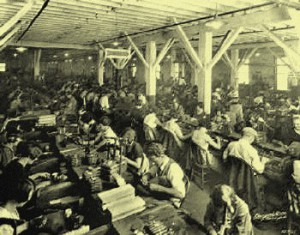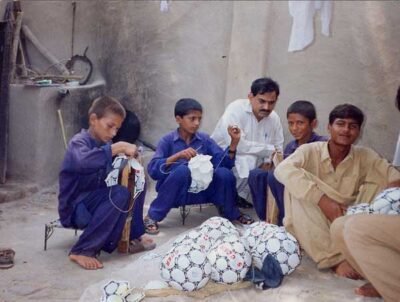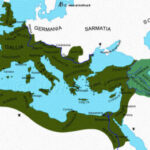October 30, 2024 MacroEcoAnemia
This scientific-technological revolution has amplified every human gesture.
Industry and quality of life. This scientific-technological revolution has amplified every human gesture

In 1899 when my grandfather was born, people did not live very differently from the ancient Romans.
There was oil lighting, people travelled in carts, sailed in sailing ships.
There was no light bulb, no telephone, nothing that depends on electricity today.
Eighty per cent of the population worked in the fields and a similar percentage were completely illiterate.
Culture was entirely the preserve of a very small elite.
People died of a simple infection, very few went to school and infant mortality was around 50%.
Of the remaining 50%, half died before reproductive age.
Information and ideas circulated very little, in the absence of cinema, radio, television.
In the space of two generations, however, there has been the greatest explosion of discovery, knowledge and change in human history.
This scientific and technological revolution has amplified every human gesture.
We can see further, hear further, communicate further, travel faster and faster.
The enormous development of knowledge has increasingly changed our view of man and nature.
By going into space, to the bottom of the oceans, or into the nucleus of an atom or a cell, we have begun to find some answers to questions we have always asked.
Technological development has enabled us to educate ourselves, heal ourselves, inform ourselves and free ourselves from fatigue.
Just think simply of the evolution of the human species.
Think back to prehistory.
When man was a hunter-gatherer, he had to provide everything himself : food, clothing, shelter.
With the invention of agriculture, truly the first technological revolution, the supply of food increased.
And so some people began to do other things, eating the food produced by others in exchange for things like pots or agricultural tools.
As progress continued, some specialised in other areas, such as trading or transporting these goods, i.e. providing services.
This gave rise to the agricultural (primary), industrial (secondary) and service (tertiary) sectors.
The latter consisted of people who were no longer producers but consumers and who offered their labour in other sectors : trade, transport, teaching.
These three sectors still exist in our economies today.
But their composition varies enormously from one country to another.
Naturally, the more industrialised a country is, the fewer people work in industry.
The more efficient the production of food and goods, the more people can be employed in education, health, information, care, leisure, music, science, tourism, literature and philosophy.
So-called people-friendly activities.
In more advanced and wealthier countries, the majority of the population is already in the tertiary sector, and the most menial tasks are usually delegated to people from poorer countries.
They are the only ones who are still willing to do the work that the indigenous people no longer want to do.
How can we manage this technological development in the right way, so that it is accessible to the majority of people and not only to those who are lucky enough to have been born in richer and more prosperous countries ?

Without technology, we too would quickly return to tilling the soil and then to illiteracy, with a life expectancy of 40 years at most, with no possibility of economic independence and education.
The discourse is purely cultural.
More than the availability of technologies, it is the culture of a country that can really change the framework of life.
In theory, all inventions and technologies are available to everyone.
But in practice, very few people actually use them.
In fact, the problem is not physical availability.
It is the ability to actually use them, to have projects and to develop them.
Of course, a lot of money is needed.
But they are of little use on their own if there are no minds capable of using them in the right way.
Funds given to depressed areas without any culture will never have the desired effect.
Not least because the very rich countries that fund it do not really want it.
Only factories that need cheap labor will be built.
Where, of course, it is easier to use human resources than to teach people about progress.
Then people would come out of ignorance.
And they would understand.
Instead, these great masses of poor people will only end up moving in huge migratory flows.










